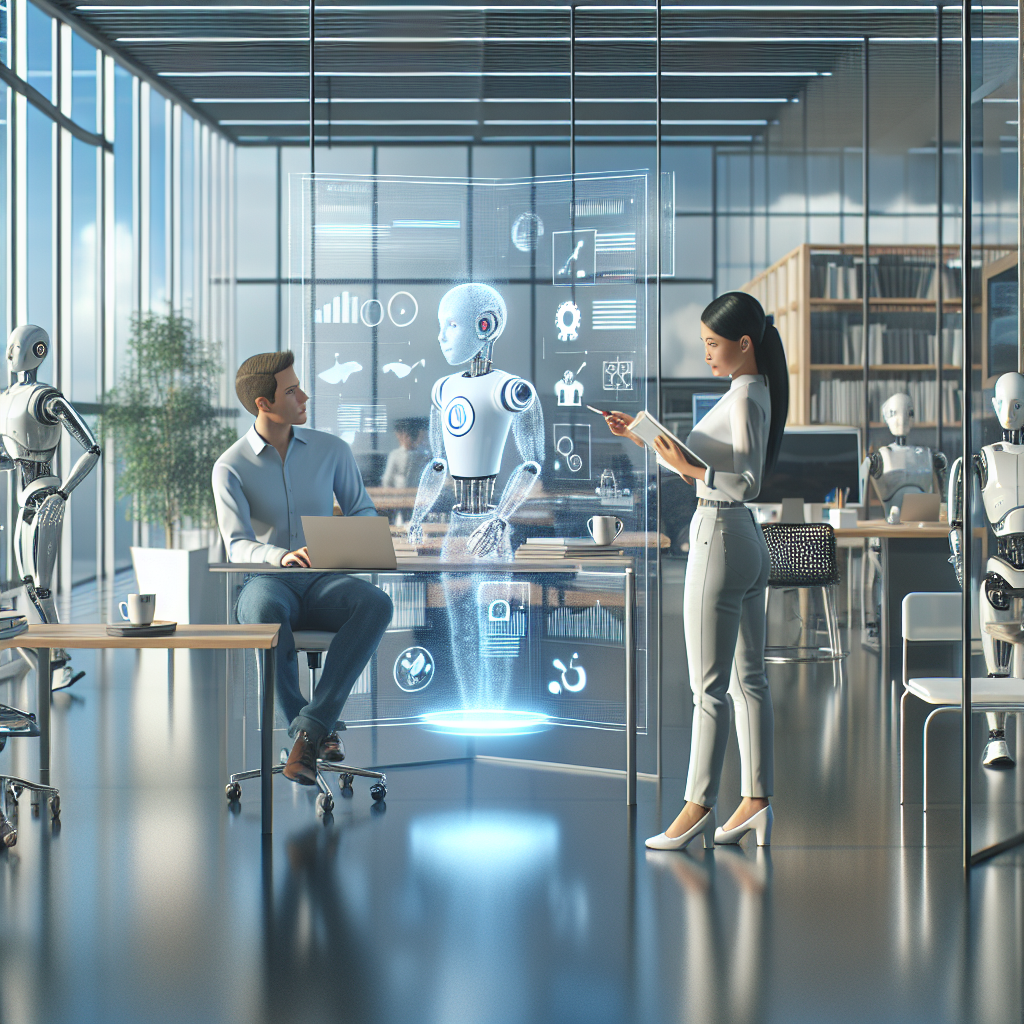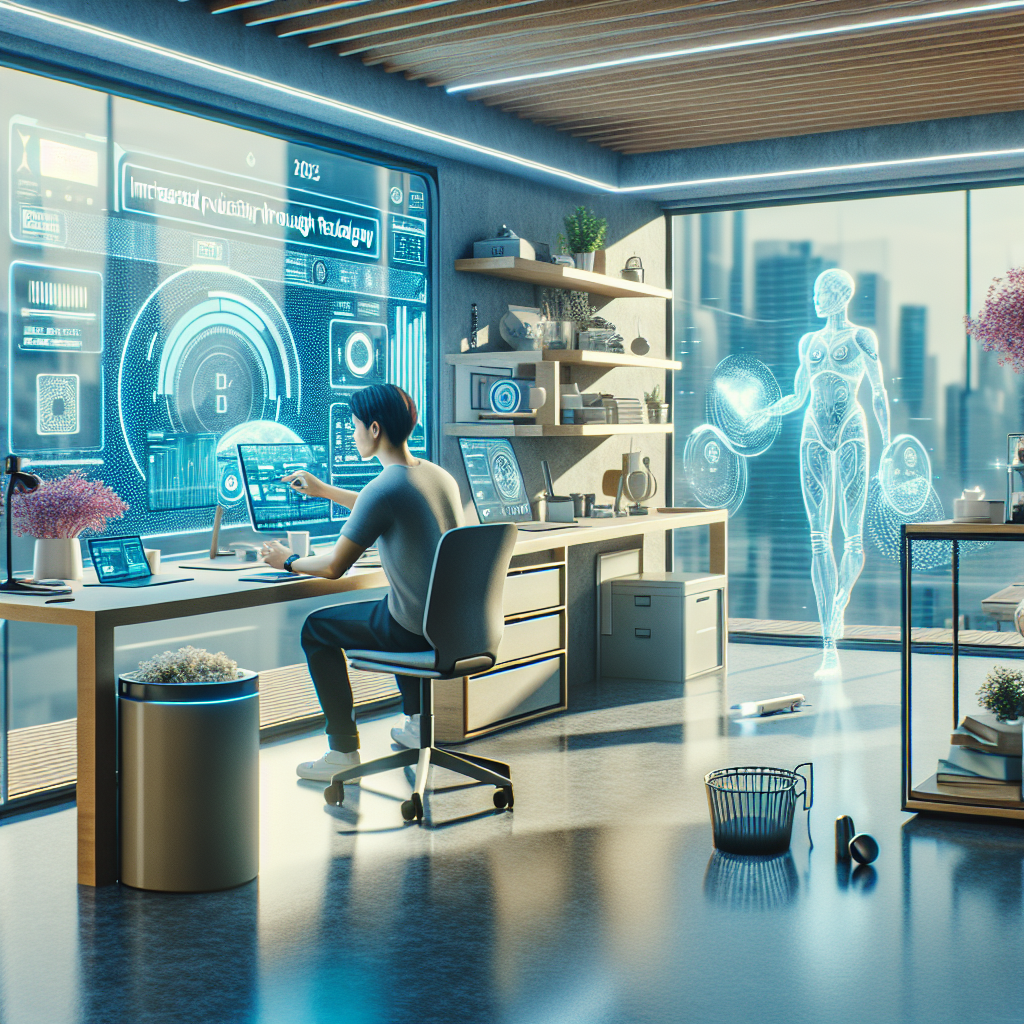Unlocking New Horizons: How AI Automation is Shaping Work in 2025
The workplace landscape is evolving faster than ever, and AI automation stands at the forefront of this transformation. From streamlining mundane tasks to enhancing decision-making, AI automation is no longer a futuristic concept but a present-day reality that’s reshaping how businesses operate. As we move deeper into 2025, understanding the full spectrum of AI automation’s impact is essential for professionals and organizations aiming to stay competitive and agile in a rapidly changing environment.
The Growing Role of AI Automation in Contemporary Workplaces
Understanding AI Automation’s Core Capabilities
AI automation refers to the use of artificial intelligence technologies to perform tasks that traditionally required human intervention. These range from simple processes like data entry to complex functions such as predictive analytics and natural language processing. Key capabilities include:
– Machine learning algorithms that improve with experience.
– Robotic process automation (RPA) for repetitive task management.
– Intelligent assistants for real-time support.
– Advanced data analysis for strategic insights.
Together, these elements enable businesses to increase efficiency, reduce errors, and free human workers to focus on higher-value activities.
Integration Strategies for Seamless AI Adoption
Successfully implementing AI automation involves careful planning and integration into existing workflows. Consider the following strategies:
– Assess current processes to identify automation opportunities.
– Start with pilot projects focused on high-impact areas.
– Invest in employee training to ensure smooth transition.
– Collaborate with AI vendors for customized solutions.
– Regularly evaluate AI tools’ performance and scalability.
By following these steps, organizations can minimize disruption and maximize ROI on AI automation initiatives.
AI Automation and Workforce Transformation
Empowering Employees Through AI Tools
Contrary to fears about job displacement, AI automation often empowers employees by automating repetitive tasks and enhancing decision-making support. Examples include:
– Chatbots assisting customer service representatives.
– Automated scheduling freeing up administrative staff.
– AI-driven analytics helping marketing teams optimize campaigns.
This shift allows workers to concentrate on creativity, strategic thinking, and interpersonal skills, which remain uniquely human strengths.
Navigating Job Market Shifts and Skill Requirements
The rise of AI automation prompts a shift in workforce skill demands. In 2025, organizations value competencies such as:
– Data literacy and analytical thinking.
– AI system management and troubleshooting.
– Adaptability to new technologies.
– Collaboration across human-AI workflows.
Preparing for this change involves continuous learning and upskilling programs that align with emerging industry standards.
Optimizing Business Processes with AI Automation
Enhancing Productivity through Intelligent Automation
AI automation offers businesses the ability to boost productivity significantly by streamlining workflows. Key areas benefiting include:
– Supply chain optimization with real-time tracking.
– Financial operations via automated invoicing and fraud detection.
– Human resources through AI-powered recruitment tools.
These improvements translate into reduced costs, faster turnaround times, and improved accuracy.
Real-Life Success Stories in AI Automation
Many companies have harnessed AI automation to transform their operations. For instance:
– A major retailer implemented AI-driven inventory management, reducing stockouts by 30%.
– A financial services firm automated compliance monitoring, saving thousands of labor hours annually.
– A healthcare provider used AI chatbots to handle appointment scheduling, enhancing patient satisfaction.
These stories illustrate AI automation’s potential to drive tangible business value.
Addressing Ethical and Practical Challenges
Ensuring Transparency and Fairness
As AI automation becomes more prevalent, ethical considerations come to the forefront. Organizations must:
– Maintain transparency in AI decision-making processes.
– Prevent biases in algorithms that affect hiring or customer service.
– Establish clear accountability for automated actions.
By addressing these issues proactively, companies build trust with stakeholders and mitigate risks.
Balancing Automation and Human Judgment
While AI excels at data processing and routine tasks, human judgment remains crucial. Best practices involve:
– Using AI insights as decision support, not replacements.
– Encouraging collaboration between AI systems and employees.
– Continuously monitoring automated workflows for errors or biases.
Striking this balance ensures AI enhances rather than diminishes workforce capabilities.
The Future Outlook: Preparing for AI Automation in the Coming Years
Investing in Adaptive Infrastructure
To accommodate increasing AI automation, businesses should invest in scalable, flexible infrastructure. This includes:
– Cloud-based platforms for data storage and processing.
– Secure networks that protect sensitive information.
– Integration tools that connect diverse AI systems.
Such investments lay the foundation for sustainable AI growth.
Fostering a Culture of Innovation and Learning
Cultivating an environment where experimentation and learning are encouraged prepares organizations for ongoing AI advances. Strategies include:
– Providing continuous professional development.
– Promoting cross-functional collaboration.
– Recognizing and rewarding innovative ideas utilizing AI.
This mindset helps companies remain competitive and agile.
Summary and Next Steps for Embracing AI Automation
The advent of AI automation in 2025 is unlocking unprecedented opportunities for enhancing efficiency, empowering employees, and driving innovation. By approaching AI with strategic planning, ethical mindfulness, and a commitment to workforce development, organizations can successfully navigate the new era of work.
To explore how your business can harness AI automation for sustainable growth, reach out today at https://automatizacionesaiscend.com. Unlock the full potential of AI and redefine the future of your workplace.



